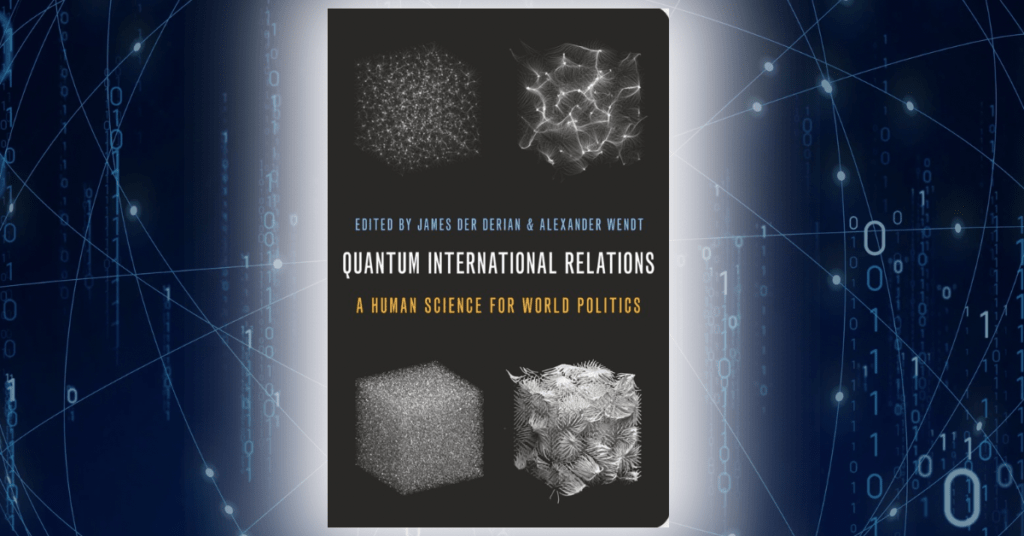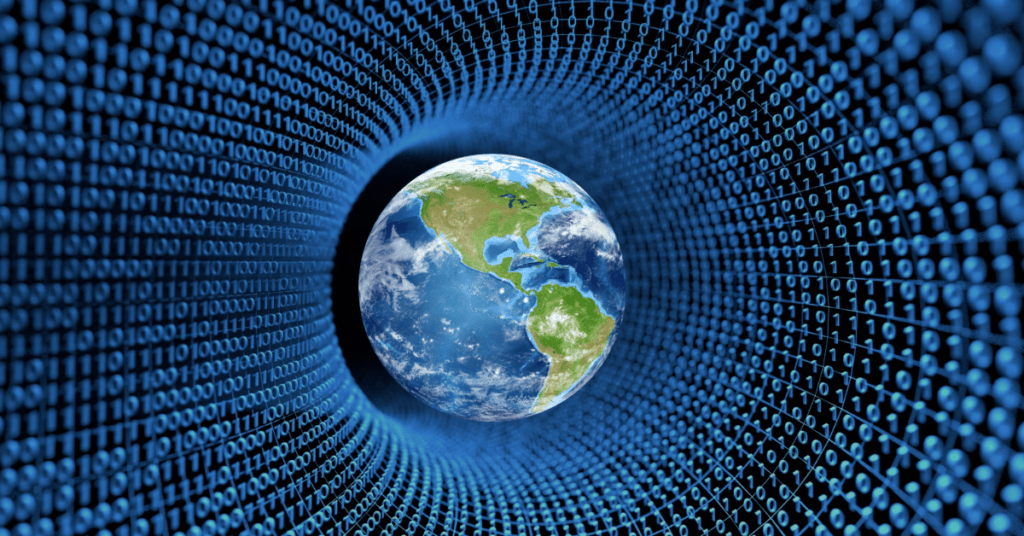Lately, a curious phrase has been circulating in the political science scene: Quantum International Relations. At first glance, it sounds more like science fiction than statecraft. But behind the poetic phrasing lies a pressing question—can quantum theory offer more than metaphor in understanding our increasingly entangled, uncertain, and observer-shaped world?
This post explores what Quantum IR is, what it isn’t, and why it might matter more than it seems—especially to those shaping the policies of tomorrow.
“If quantum theory is true—and I believe it is—then it applies to humans.”
—Alexander Wendt, Quantum Mind and Social Science
What is Quantum IR?
Quantum International Relations, or Quantum IR, is an emerging approach that borrows principles from quantum physics to rethink how global politics function. Scholars like Karen Barad, Alexander Wendt, and James Der Derian have each contributed to framing this shift. Not as a literal translation of physics into political analysis, but as a reorientation of thought.
Wendt, in particular, argues that if quantum mechanics is the best theory of the physical world we have, it should at least be explored as a basis for understanding social systems. Der Derian, meanwhile, uses quantum metaphors to critique the reductionist and linear logic of traditional IR, suggesting that entanglement and uncertainty better describe the interconnected, unpredictable nature of global relations.
This does not mean states behave like electrons—but rather, that classical assumptions in IR may obscure more than they explain.

QIR… why bother?
At first glance, Quantum IR might seem like a stretch—why borrow ideas from physics to explain diplomacy or war?
But the reason is simple: the world has changed, and the frameworks we use to understand it haven’t kept up. Classical IR models, built on assumptions of rationality, linear causality, and fixed identities, often collapse under the weight of today’s complexity. Quantum IR offers tools (like uncertainty, observer effects, and entanglement) that resonate more closely with how power, perception, and interaction actually work in our global system.
Wendt puts it bluntly: if the world is quantum, then our theories should reflect that. This doesn’t mean rejecting Realism or Liberalism, but expanding the toolbox. Quantum logic opens space for fluidity, multiplicity, and even paradox—elements that are increasingly essential for grasping issues like cyber conflict, climate negotiation, or global narrative warfare.
In short: we bother because our current models can no longer explain the world we’re living in.
“We need to get ahead of the quantum curve, to seriously consider what kinds of norms, rules and governance are appropriate for the next stage of a quantum revolution.”
— James Der Derian, Interview with E-International Relations
Is Quantum IR just a metaphor?
Skeptics of Quantum IR are right to ask whether this is simply a metaphor dressed in complexity. After all, the political world isn’t governed by the laws of subatomic particles—or is it?
In truth, all theories in International Relations are, at some level, metaphorical.

Realism, for example, draws from assumptions about human nature; Liberalism invokes analogies of market cooperation. The power of a theory lies not in its literal truth, but in its usefulness. Quantum IR may not offer equations for diplomacy yet, but it provides conceptual tools for engaging with uncertainty, non-linearity, and the role of the observer—features that classical models often ignore.
As Der Derian notes, “Quantum is not just a physical science, but a human science too.” The metaphor, then, becomes a framework: one that allows for multiple truths, relational logic, and a rethinking of how identity and power are co-produced.
Where Quantum International Relations goes next
Quantum IR is still in its early stages, but its implications are vast.
Future work could bridge this framework with disciplines like neuroscience, trauma studies, and consciousness research—fields that already challenge classical separations between observer and observed.
It could also influence how we approach global problems: from climate diplomacy to cybersecurity, where the terrain is shaped as much by perception and flow as by force. Politically, the language of entanglement and coherence offers new ways to think about alliance-building, trust, and recognition.
Practically, this means retooling how diplomats are trained, how narratives are measured, and how legitimacy is constructed in the international arena.
The path forward isn’t about proving Quantum IR in a lab—it’s about using it to illuminate what traditional theories miss. And for those willing to listen, its metaphors may just become method.
Final reflections on QIR
Maybe Quantum IR is a metaphor.
Maybe it’s a framework.
Maybe, like a particle, it’s both—depending on how you look at it.
But in a time when the international system feels fragmented, reactive, and overwhelmed, we need more than rigid models. We need ways of thinking that reflect the complexity we’re navigating. Quantum International Relations doesn’t offer easy answers.
What it offers is permission—to think differently, to hold paradox, and to acknowledge that how we observe the world might just shape what becomes possible within it.
Stay curious.
References
- Barad, K. (2007). Meeting the universe halfway: Quantum physics and the entanglement of matter and meaning. Duke University Press.
- Der Derian, J. (2016, August 5). Interview – James Der Derian. E-International Relations. https://www.e-ir.info/2016/08/05/interview-james-der-derian/
- Der Derian, J. (2022). Quantum international relations: A human science for world politics. Oxford University Press.
- Wendt, A. (2015). Quantum mind and social science: Unifying physical and social ontology. Cambridge University Press.









No responses yet